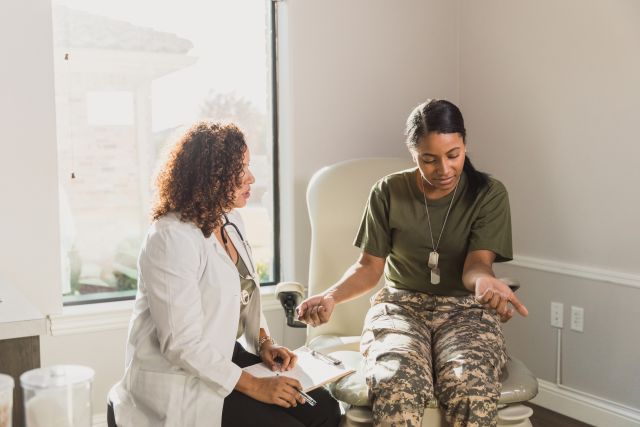Whether your symptoms are new or you've already started treatment, it's important to be open and honest with your doctor. To give you the best care, your doctor needs to know what symptoms you're having, how they've changed and how they affect your life.
Tell your doctor if you have:
- Red, scaly, dry, cracked or bleeding skin
- Itching, burning or sore skin
- Changes in your nails, such as pitting, thickening, loosening or changes in color
- Swelling, stiffness or pain in any of your joints (fingers, toes, wrists, knees, etc.)
- Back or neck pain
- Foot pain
- Eye pain or redness
- Fatigue
- Any new skin or joint symptoms (even if they're mild or seem unrelated)
Other clues that can help your doctor choose or adjust your treatment include:
- How often you have skin symptoms, how long they usually last, and if they come and go or are always present
- How mild or severe skin symptoms are
- Where skin symptoms are on your body
- How often you have joint pain, swelling and stiffness, and how long it lasts
- How intense your joint pain is on a scale of 1 to 10 (1 is mild, 10 is worst)
- Which joints or body areas are painful, swollen or stiff
- If your energy level is better or worse since your last visit
- How easy or difficult it is for you to do daily tasks (get dressed, drive, cook, etc.)
- If anything makes your symptoms worse
- How you feel overall (better or worse since your last visit)






